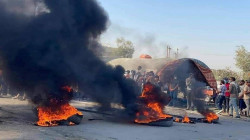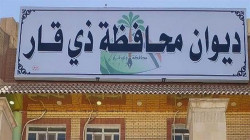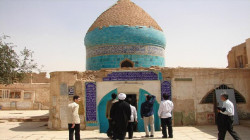Iraqi security forces arrest 39 members of a banned religious group

Shafaq News/ Iraqi security forces arrested 39 members of the outlawed "al-Qurban Group" in four governorates, the National Security Agency said on Saturday.
The agency said its forces apprehended suspects in Wasit, Basrah, al-Muthanna, and al-Diwaniyah in accordance with arrest warrants.
The group, which considers Imam Ali divine and condones suicide as a form of sacrifice, is banned in Iraq.
"A detachment in Wasit arrested four suspects belonging to al-Qurban Group near processions during Ashura commemorations," the agency said in a statement. "They possessed pictures of a person who previously committed suicide and planned to conduct their extremist rituals."
Authorities are concerned about the group's exploitation of teenagers. Last month, a 15-year-old boy reportedly affiliated with the group hanged himself in Dhi Qar. Iraqi security services on June 16 arrested a suspect accused of two murders in the southern Shiite-dominated southern governorate.
An individual claiming to represent Allahiyah—which is also known as al-Qurban or "The Sacrifice" in Arabic—stated in an interview that the group was misrepresented in the media. While the individual claimed that the movement does not condone murder, he affirmed that its practices do entail a lottery-based practice of suicide.
Mainstream Shiite traditions see Ali bin Abi Talib (600-61) and his sons Hassan (624–70) and Hussein (626–80) as the first Imams and rightful inheritors of the Muslim community's leadership after Prophet Muhammad's passing.
The approximately 2,500-strong group in Dhi Qar is reported to be a splinter group made up of followers of the prominent late Shiite cleric Muhammad Muhammad-Sadiq al-Sadr (1943–99). Of note, his son and prominent Shiite cleric and politician Muqtada al-Sadr has previously disavowed similar mystical groups due to their nonconformist practices.
While largely limited to Iraq’s southern governorates, some observers suggest that Allahiyah beliefs are inspired by Iranian religious movements that allegedly promote the spiritual primacy of Ali bin Abi Talib.





